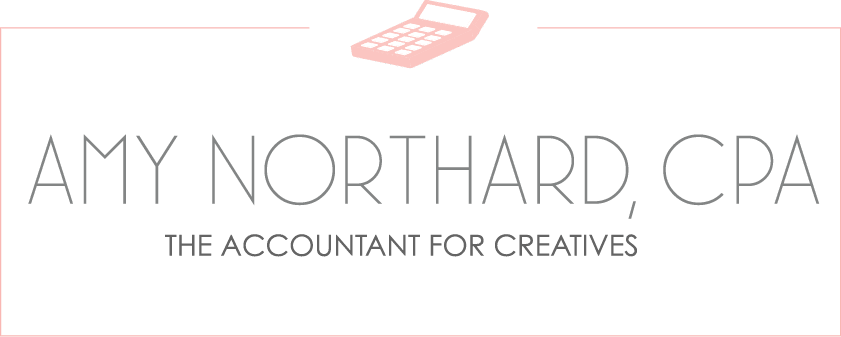Can you deduct 20% of your net rental income from your income taxes? If your real estate investment brings in qualified business income (QBI), then you probably can!
In today’s post, I’ll explain how to make your rental property qualify for QBI.
What is QBI?
Before you can understand how to make your rental property qualify for QBI, you first need to understand what that is. Qualified business income is the net taxable income from a qualified trade or business.
QBI can include income from partnerships, S-corporations, sole proprietorships, limited liability companies (LLCs), and certain trusts but not income from C corporations or wages from an employer. Other types of income like income from interest, shareholder wages, or capital gains and losses do not count as QBI.
How does making my rental property qualify for QBI save me tax money?
Since the Tax Cuts and Jobs Act that was passed in 2017, business owners have been allowed a QBI deduction on their income taxes. This is sometimes also called a Section 199A deduction. The QBI deduction allows you to deduct up to 20% of QBI plus 20% of qualified real estate investment trust (REIT) dividends and qualified publicly traded partnership (PTP) income with some limitations.
You can qualify for this deduction no matter if you itemize or take the standard deduction. Your deduction may be limited depending on your income, which I’ll discuss later in this post. Your deduction is also limited to the lesser of these amounts:
- 20% of your QBI component plus the REIT/PTP component, or
- 20% of your taxable income minus your net capital gain.
Let me give you an example of what the QBI deduction for real estate income looks like for one of my clients. Lucy, a wedding photographer, is a single filer and her total taxable income in 2022 was $150,000. Of that $150,000, her QBI from a rental property she owns was $75,000. Since Lucy qualifies to take the full 20% QBI deduction, we’ll multiply $75,000 x 20% to get a $15,000 deduction. Lucy is in the 24% tax bracket, so this deduction will save her $3,600 on her tax bill.
Additionally, the IRS put out Notice 2019-07 in 2019 to clarify the rules and provide “safe harbor” for owners wanting to use the QBI deduction for rental property. I’ll save you from reading all of the IRS mumbo jumbo in that notice and just say that the word “passive” caused people a lot of problems, but those problems can be avoided if you follow the steps below.
How can I make my rental property qualify for the QBI deduction?
Step 1: Set up the right type of business entity.
The first step to making sure your rental property can qualify for the QBI deduction is to make sure you have set up a real estate company or enterprise using one of the qualified business entities. To qualify for QBI, the income has to come from a “pass-through” business entity that is not taxed as a C-corporation. Pass-through businesses include S-corporations, sole proprietorships, partnerships, and limited liability companies (LLCs).
Step 2: Make sure you’re not using the rental property in a way that excludes its rental income from QBI.
There are several types of property and ways you use the property that may exclude its income from QBI. The main problems are:
- If the property is not in the United States, it’s excluded.
- If you–the taxpayer and business owner–use the property for yourself during part of the year, then any income you receive from renting that property isn’t QBI. This means you can’t use the property as your second home or vacation home.
- If the property is on a triple-net lease (NNN), which means the tenant is paying for the maintenance, insurance, and property taxes on top of their monthly rent, then the income from the property isn’t QBI.
- If the property is land that you are leasing to a farmer or rancher for agricultural purposes, the income from that lease isn’t QBI.
Step 3: Check off all of the items below to make sure the IRS will allow the QBI deduction for your real estate income under the safe harbor provision.
- You can have a real estate business or enterprise for one property or a group of properties, but you cannot mix residential and commercial properties within one enterprise or group. You’ll need separate enterprises if you want to do that.
- You must maintain separate books and records for each of your real estate businesses or enterprises. This is where you’ll track income and expenses for your properties.
-
If your real estate business or enterprise has been in existence less than 4 years, you must perform at least 250 hours of rental services (per enterprise, not property) during the year. For businesses that have been around longer than that, you must have performed at least 250 hours of rental services in at least 3 of the past 5 years. Rental services include things like:
- Advertising the property for rent or lease
- Negotiating leases
- Screening tenants
- Collecting rent
- Responding to maintenance requests
- Coordinating repairs on the property
- Purchasing materials and supplies
- Conducting property management activities including the purchase of materials and supplies
- Supervising employees and independent contractors
-
You must keep and maintain service records that include the following information:
- Date the services were performed
- Number of hours spent performing services
- Description of the services performed
- Information about who performed the services
- You must attach a statement to your tax return letting the IRS know that you’re relying upon the safe harbor rule to qualify for the QBI deduction and you’ve met all requirements.
How does my income affect my QBI deduction?
One other important note is that how much of the QBI deduction you can claim is based upon your income level. For tax year 2022, single filers with a total taxable income up to $170,050 and joint filers with a total taxable income up to $340,100 can take the full 20% deduction.
If your total taxable income is above those limits, then the amount of QBI you can use towards this deduction will be phased out or completely eliminated. It’s important to know that your total taxable income includes both earned and unearned income, which means it’s not just your business income that is included in that total amount. You can work with a CPA to determine if your total taxable income is over the IRS limits and to understand how your income may affect your QBI deduction.
The bottom line is that by making some strategic choices and keeping good records, you can save yourself big money come tax time by using the QBI deduction for your rental property.

